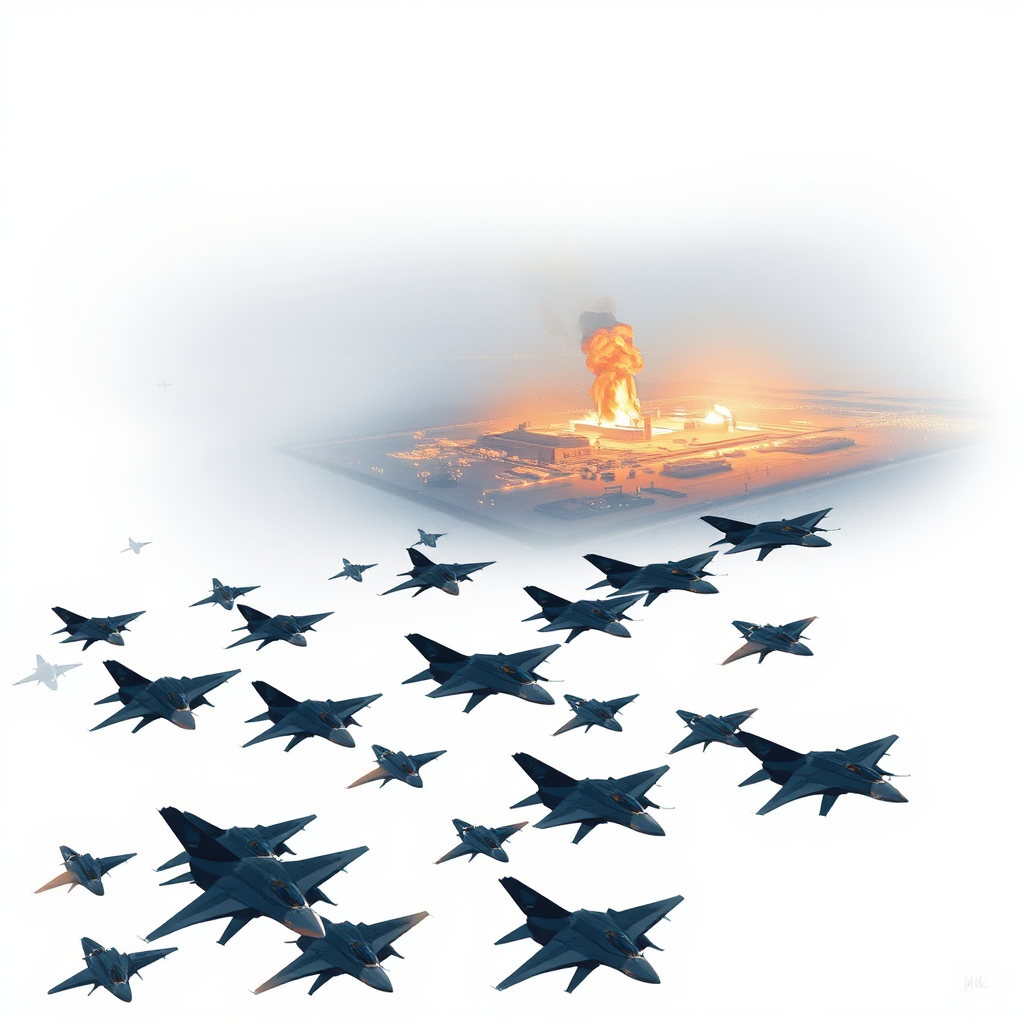Israel Strikes Iran Nuclear Sites in Retaliation

Israel launched a significant military operation against Iran early Friday, conducting strikes targeting the country’s nuclear program without the involvement of the United States. Explosions were reported in multiple locations, including Tehran and Natanz, home to a key nuclear facility. Israeli Prime Minister Benjamin Netanyahu, in a televised address, characterized the operation, dubbed “Rising Lion,” as a direct response to Iran’s nuclear ambitions, specifically targeting enrichment and weaponization programs. He stated the offensive would continue until the perceived threat is neutralized.
Initial reports suggest the strikes were not limited to nuclear facilities. Sources indicate that residential buildings believed to house senior Iranian officers and officials were also targeted. Iranian state media reported the deaths of Major General Hossein Salami, chief commander of the Islamic Revolution Guard Corps, along with nuclear scientists Fereydoun Abbasi-Davani and Mohammad Mehdi Tehranchi. Further claims, citing an Israeli defense official, suggest that Iran’s top military leadership, including Armed Forces chief of staff Mohammad Bagheri, may also have been eliminated, though independent verification is pending.
The Israel Defense Forces (IDF) confirmed launching a “preemptive, precise, combined offensive” utilizing dozens of Air Force jets. IDF spokesperson Effie Defrin justified the action as necessary to prevent Iran from developing a nuclear weapon “in the immediate timeframe,” framing it as a response to an “imminent and existential threat.” Reports from Axios indicate the airstrikes were accompanied by covert sabotage operations led by Mossad, aimed at damaging Iran’s missile sites and air defenses.
The timing of this operation is particularly sensitive, coming after the U.S. began evacuating embassy personnel from the Middle East amid stalled negotiations regarding Iran’s nuclear program. The attack raises serious concerns about escalating regional tensions and the potential for retaliatory strikes. Israeli Defense Minister Israel Katz has already warned that a retaliatory attack on Israel and its civilian population is “expected in the immediate timeframe.”
The U.S. response has been carefully calibrated. While maintaining it was not involved in the strikes, the White House confirmed that President Trump was monitoring the situation from the Situation Room. Secretary of State Marco Rubio emphasized that the U.S. priority is protecting American forces in the region and warned Iran against targeting U.S. interests or personnel.
The political fallout is already evident. U.S. lawmakers have offered mixed reactions, with some, like Senator Tom Cotton, expressing strong support for Israel, while others, like Senator Chris Murphy, criticize the timing of the strikes as potentially undermining previous negotiations.
This is a deeply concerning development. While Israel maintains it acted in self-defense, the unilateral nature of the operation and the potential for escalation are significant risks. The long-term consequences for regional stability and the prospects for a diplomatic resolution to the Iranian nuclear issue remain highly uncertain. The situation demands careful diplomacy and a concerted effort to de-escalate tensions before they spiral out of control.